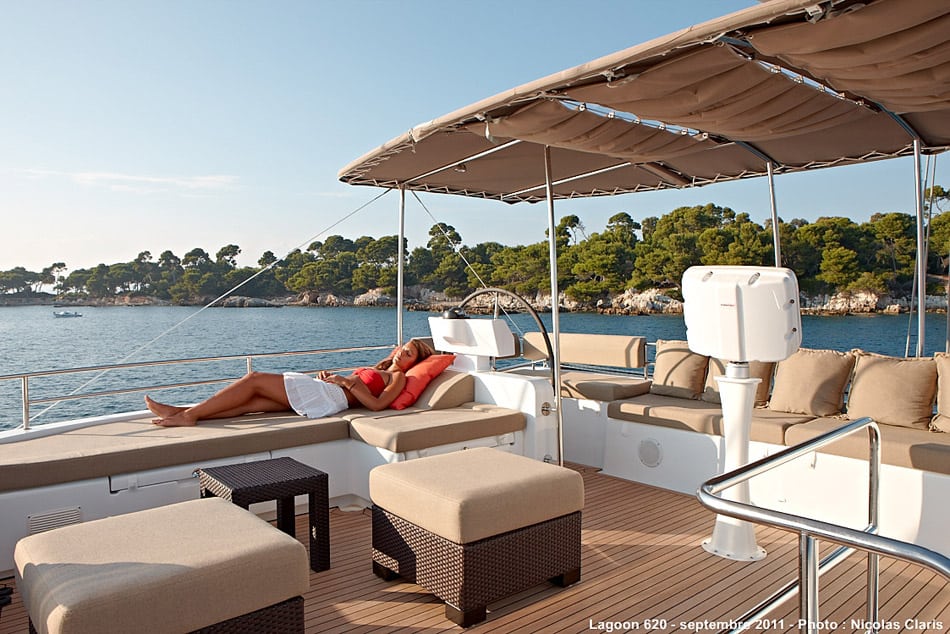Overseas Radio Network – Lower Costs of Yacht Ownership: Yacht in Charter Business & Section 179
 In the Overseas Radio Network Show 4, Segment 1, we will talk about how liveaboard cruisers fund their escape. We start with lowering costs of yacht ownership:
In the Overseas Radio Network Show 4, Segment 1, we will talk about how liveaboard cruisers fund their escape. We start with lowering costs of yacht ownership:
- Place yacht in a charter business
- Section 179 benefits charter yacht owners
- Charter base placement affects charter revenue
GARY FRETZ: Ahoy, mates! This is your host, Gary Fretz. And our show is about “Yachts, the Perfect Escape Vehicle”. You might be wondering why yachts makes the perfect escape solution. Well, it is because you can find liveaboard yachts for $15,000 or $15 million dollars and everywhere in between. They serve as your home and they provide in expensive transportation around the world.
For a transcript of this podcast, click “read more” below.
GARY: Yes, it is possible to sail around the world for next to nothing using wind power. And if you would like to know how to do that just stay tuned, my co-hosts today are Stephen and Estelle Cockcroft. They left South Africa in 1992 and they visited over 50 countries. They sailed all over the world and have a huge number of adventures to talk about. So let’s get down to business.
Many listeners want to know how to finance their dream boat and the subject of today’s show is how to fund your escape. Now in our last show we had Don and Linda who used the charter management option to pay for their boat. And they were able to afford a much nicer boat than they could otherwise afford and pay a lot less. So, Stephen, how did this all work?
Put Your Yacht into a Charter Business
STEPHEN COCKCROFT: Well, Don and Linda purchased the boat with the specific intent of putting it into charter service. When you put a boat into charter service, what happens is that the holding cost of the boat are covered by the income generated from the charter fees. For example, we have insurance, dockage, maintenance, etc., which normally, under conventional ownership, you would have to pay out of your pocket. So chartering your boat definitely contributes towards the holding cost.
There are a number of ways to do this. There are number of different programs. There are number of different locations that we can speak about later. But at this stage the other thing that they took advantage of was the fact that they were very actively involved in running their boat and they ran their boat as a small business where they put the boat into a corporation. And they actively ran and managed the boat which allowed them to take substantial tax advantages. Because they weren’t taking the taxes as an individual, they were taking it as a small business and this generated quite a substantial tax advantage which went to also offsetting the cost of the boat. [See an overview of charter yacht management programs and checkout more about yacht charter management programs.]
GARY: So let me understand this a little better. They received large tax deductions for…was it accelerated depreciation?
STEPHEN: Yes, they depreciated the boat. You depreciate on the MACRS scale which accelerates over the first five years. They also get tax relief interest from their mortgage. They get deductions such as maintenance. You know, all the business expenses travelling to and from their boat to inspect their asset. They had a website. They had administrative fees, all of which were deductible under normal tax rules.
GARY: And these were pretty substantial deductions, I mean I understand that you can get up to half a million dollars in tax deductions nowadays.
Section 179 Benefits Charter Yacht Owners
STEPHEN: Well, there is a program called Section 179 which allows you to take an upfront deduction. They elected not to take that and they spread the deductions over the five years that they actively ran their boat business within the charter fleet. In the end. You can either take a big deduction upfront or you can amortize it over the 5 years. At the end of the term, it generally works out to roughly the same number. But, I would guess that they probably got 50% of the cost of their boat to offset from charter revenue and from tax advantages. [Learn more about Section 179 business depreciation and how it can benefit yacht buyers]
GARY: Wow, that’s big. Now charter revenue…they told me that when the boat was based up north because, of course, the season was much shorter there, they probably had net in their pockets at the end of the year something around $10, 000. But when they based it down south, it was something like $20, 000 net. Is this typical for a boat like that? And what was the value, do you know more or less what they paid for that boat?
STEPHEN: I think they paid around about $350,000 for the boat. You know they talk about the $10,000 net in their pocket…you must remember that’s after all the holding costs. In conventional ownership, you wouldn’t have the $10,000, you would have the overhead to control the boat to pay for insurance, pay for dockage, etc., maintenance, because you wouldn’t have offsetting income. So it is a substantial turnaround.
GARY: And in addition to the tax benefits and income benefits, they also got to use their boats as well too, right?
STEPHEN: Essentially they really didn’t use their boat for personal use as such. They did a lot of familiarization trips because they were selling charters on their boats. They had to go and inspect their asset. They moved it around. But if you want to use it personally and live aboard it, etc., then the tax advantage program would not be for you.
Charter Base Placement Affects Charter Revenue
GARY: Okay, and where did they base their boat to get the best utilization?
STEPHEN: Well, you always look for the best cruising ground where you have the most occupancy potential. For example, they were in Florida where the weather is good for a long period and when they went up north they had a much shorter sailing season. But, of course, maintenance is high when the boat is busy, maintenance is low when the boat is not that busy, so it offsets itself.
GARY: Wow, that sounds like a viable plan. Are a lot of people doing this?
STEPHEN: Yes, a lot of people are doing it. More people are discovering that by putting your boat into a corporation and actively running it as a business there are substantial tax advantages and it is a very smart way to own yacht.
GARY: Okay. well we have to take a short break and we will be right back to continue our discussion about ways to finance your dream yacht. You are listening to “Yachts, the Perfect Escape Vehicle” only on Overseas Radio Network.





